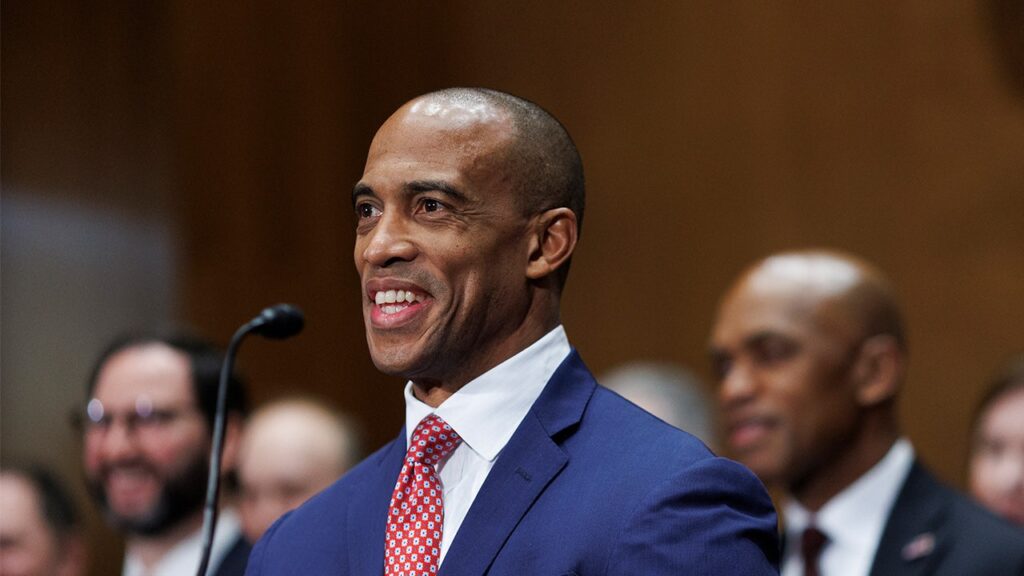In a critical development unfolding in Washington, the U.S. Department of Housing and Urban Development (HUD) has levied accusations against congressional Democrats for initiating a potential government shutdown. With funding expiration set for 11:59 p.m., HUD officials have explicitly stated that the “Radical Left” is jeopardizing essential services for vulnerable families. Amidst escalating tensions, HUD is committed to maintaining crucial housing programs during this tumultuous period.
| Article Subheadings |
|---|
| 1) Overview of the Impending Shutdown |
| 2) The Role of HUD and Its Leadership |
| 3) Government Response and Implications |
| 4) Reactions from Congressional Democrats |
| 5) Consequences of a Government Shutdown |
Overview of the Impending Shutdown
As the clock ticks down to midnight, the debate in Congress intensifies over government funding, raising concerns for millions of Americans reliant on federal assistance. With the looming deadline, officials from the Office of Management and Budget (OMB) have indicated that unless an agreement is reached, significant portions of the federal government will cease operations. The HUD has taken a particularly firm stance, asserting that the inaction of Democrats has led the nation towards this precarious situation, characterized by the dire implications of a government shutdown.
At the crux of the matter lies the proposed continuing resolution, H.R. 5371, which seeks to extend government funding temporarily. However, Democratic opposition points to the additional spending demands as a significant roadblock, leading to the risk of a shutdown that could impact housing aid programs critical for marginalized communities.
The Role of HUD and Its Leadership
HUD plays a vital role in shaping housing policies across the nation and is headed by Secretary Scott Turner, a former NFL player with a history in public service. Under his leadership, HUD aims to safeguard essential housing services that affect low-income families and vulnerable demographic groups. On Tuesday, HUD officials reiterated their dedication to keeping these programs operational despite the political turmoil stemming from the funding disputes.
Turner’s leadership has come under scrutiny, especially in light of recent accusations against his department for politicizing the shutdown. The pop-up messages on HUD’s official website blaming Democrats for potential shutdown repercussions have drawn ire, sparking questions about the appropriateness of such partisan messaging in governmental communications.
Government Response and Implications
The OMB, led by Director Russell Vought, issued a memo stating that plans must be enacted to address the funding disruptions. Employees across federal agencies have been instructed to prepare for a shutdown, and many are facing uncertainty regarding their employment status as negotiations stall. Vought’s assertion that Democrats have placed “insane policy demands” on negotiations has become a rallying point in discussions surrounding the impasse.
As the White House backs the emergency spending bill, the length and magnitude of the impending shutdown remain uncertain. This instability raises alarms regarding essential services such as housing assistance, which could see drastic interruptions based on political negotiations.
Reactions from Congressional Democrats
Democratic leaders have expressed their dissatisfaction with the approach taken by HUD and the administration. Representative Sylvia Garcia from Texas criticized the use of government communication channels for partisan messaging, arguing that it dilutes the integrity of federal agencies. Her concerns echo sentiments from other party members who emphasize the importance of bipartisan cooperation to avoid the fallout from a government shutdown.
Additionally, Representative Jamie Raskin from Maryland branded the situation a “radical departure from American history,” pointing out the misuse of taxpayer-funded platforms for political gains as unacceptable. These comments reflect an overarching concern that the current political strategies employed could have long-term repercussions for governance.
Consequences of a Government Shutdown
The implications of a government shutdown extend far beyond the political arena, impacting millions of citizens who rely on government assistance for housing and other essential services. As funding ceases, critical programs operated by HUD could face immediate freezes, affecting low-income families, veterans, and various community services that provide stability to American lives.
Research indicates that prolonged shutdowns may lead to economic downturns, spike unemployment rates, and disrupt crucial services that help vulnerable populations. As part of the discussions surrounding the funding deadlock, the specter of widespread hardships looms large, demanding urgent attention from lawmakers on both sides of the aisle.
Key Points
| No. | Key Points |
|---|---|
| 1 | HUD has accused congressional Democrats of contributing to an impending government shutdown. |
| 2 | Secretary Scott Turner emphasizes the need to protect critical housing services amidst the political strife. |
| 3 | The OMB has ordered agencies to prepare for shutters as negotiations falter. |
| 4 | Democratic lawmakers criticize the political messaging from HUD and stress bipartisan efforts to avoid shutdown consequences. |
| 5 | A government shutdown could result in widespread hardships for Americans relying on federal assistance. |
Summary
The current stalemate in Congress over funding issues highlights the growing partisan divides and the potential fallout from governmental inaction. As HUD officials brace for the consequences of a shutdown, the urgency to safeguard essential services remains paramount. The political landscape in Washington continues to evolve, and the ramifications of this impasse raise critical concerns for families and individuals who depend on government support. This situation underscores the need for effective governance and a collaborative approach toward future budgetary measures.
Frequently Asked Questions
Question: What are the primary concerns of HUD regarding the government shutdown?
HUD is concerned that the shutdown will disrupt vital housing services and assistance programs, particularly affecting low-income families and vulnerable communities.
Question: Who is Scott Turner, and what role does he play in this situation?
Scott Turner is the Secretary of HUD, responsible for ensuring the continuation of essential services during the politically charged atmosphere surrounding the government funding discussions.
Question: What are the potential economic impacts of a government shutdown?
A government shutdown may lead to economic downturns, rising unemployment, and disruption of critical services, significantly affecting citizens dependent on federal aid and programs.
